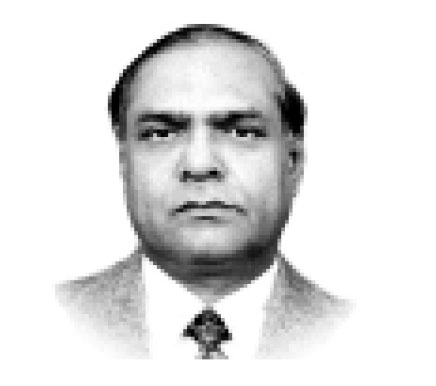RASHID A MUGHAL
AS Muslims, it is our faith that whatever good or bad comes to you, it is due to your own actions (good or bad). Quran clearly says so. It is the command of Allah, the Almighty and there are no exceptions and no ifs’ and buts’ in it. Since last five months we have seen crisis-unheard of and never seen before, in the shape of Corona Virus (Covid19).While it is being still debated whether it is part of biological warfare and brainchild of some sick and insane mind or criminal negligence on the part of state or its people or punishment fromAllah for our misdeeds, damage to humanity it is causing is something which cannot be described. Corona doesn’t differentiate between rich and poor, young or old and black or white. The most scary reality is that there is no authentic treatment or vaccine for cure.The damageitis causingto people in almost 170 countries, where it has spread, is unprecedented and speed at which it has travelled in a span of 2/ 3 months, has left scientists and doctors flabbergasted. The priority now needs to be the immediate needs of pandemic management, with governments collaborating to accelerate the development of vaccines, to produce urgently needed medical equipment and other supplies and to coordinate restrictions on movement and the treatment of foreign nationals. But the world also needs a coordinated economic response. Vulnerable governments that risk buckling under the strain of the pandemic require financial support to prevent the global health crisis from also becoming a financial crisis. Italy is already in urgentneed of support and many developing countries will soon be, too. Coordination to pre-empt a systemic collapse of economies around the world is vital. It is encouraging to see the International Monetary Fund and other agencies taking a lead. IMF has very timely realized the potential damage Covid-19 can cause to the global economic system and possibly worldwide recession. One can only hope that this doesn’t happen. Internationally, there could be a fresh commitment to restoretrustin globalinstitutions by ensuringthattheWorld Health Organization and other vital agencies of the United Nations are equipped to meet this challenge. The United States’role is pivotal. Not as a bully, but as a leading member of the global community addressing shared threats. Achieving this in the current climate may seem unlikely because the rich countries have not only fired all their fiscal and monetary ammunition but also lost the political will to cooperate. Governments are trapped in a cycle of stagnant growth and mounting debt, postponing muchneededinvestmentsin risk management andinfrastructure. Political gridlock undermines the will to work together. No wall is high enough to keep out the threats to our future, even for the mightiest countries. Growing global integration brings rising interdependency. The greatest risk we face is not from any of the individual systemic risks. It is the lack of willingness to cooperate with others to resolve these problems. Why are we waiting? Writing in Financial Times, RobertAdam says there is no longer any doubting the seriousness of the Corona Virus crisis. But we need to be clear about what kind of crisis this is. It has the potential to do worldwide economic and human harm. It is a global crisis, not a crisis of globalisation. The distinction is important, because if politicians and business leaders take the wrong lessons from this crisis, the world will be less prepared for the next. It is not surprising that, when Covid-19 still looked like a Chinese rather than a global problem, US Commerce Secretary Wilbur Ross said that the virus, regrettable though it was, would “help accelerate” the return of jobs to North America. If you see the world economy as a zero-sum game, one country’s loss must be another’s gain. But companies still see the advantages of global trade, consumers still benefit fromit, andit still makesthe world a safer place. Economically, Corona Virus sits alongside the Fukushimaearthquakeand nuclearaccident,US-Chinatrade conflicts,and other recent global disruptions.Whatthey have in common is that they demonstrate dangers of highly concentrated, just-in-time supply chains — not international ones.Fortoolong,companiesarrangedtheir operationswith only costin mind, says Per Hong, a supply chain consultant at Kearney. Yet crises “underline the need for companies to design their supply chains around risk competitiveness” rather than cost alone. Microchips are perfect example of howlocal specialization, spread across world, creates better products than is possible in any one place. The best chip manufacturing equipment comes from Holland; the strongest chip designs from the US; the best foundries are in Taiwan; and so on. Nor can companies, with profits at stake, indulge in Mr Navarro’s fallacy that all threats originate abroad. The UK’s domestic coal supplies did not protect it during the 1980s miners’ strikes. America’s vulnerability to hurricanes and floods is demonstrated repeatedly. The next crisis might start anywhere. These are the times of global co-operation and not confrontation. The economic damage Covid-19 is causing, is unprecedented and probablymuchmoreinmagnitudethan 2008 financial crisis. But the damage humanity is suffering in the shape of lives of thousands of people, worldwide, is a great tragedy. One can only hope and pray for the betterment of mankind. — The writer is former DG (Emigration) and consultant ILO, IOM.










